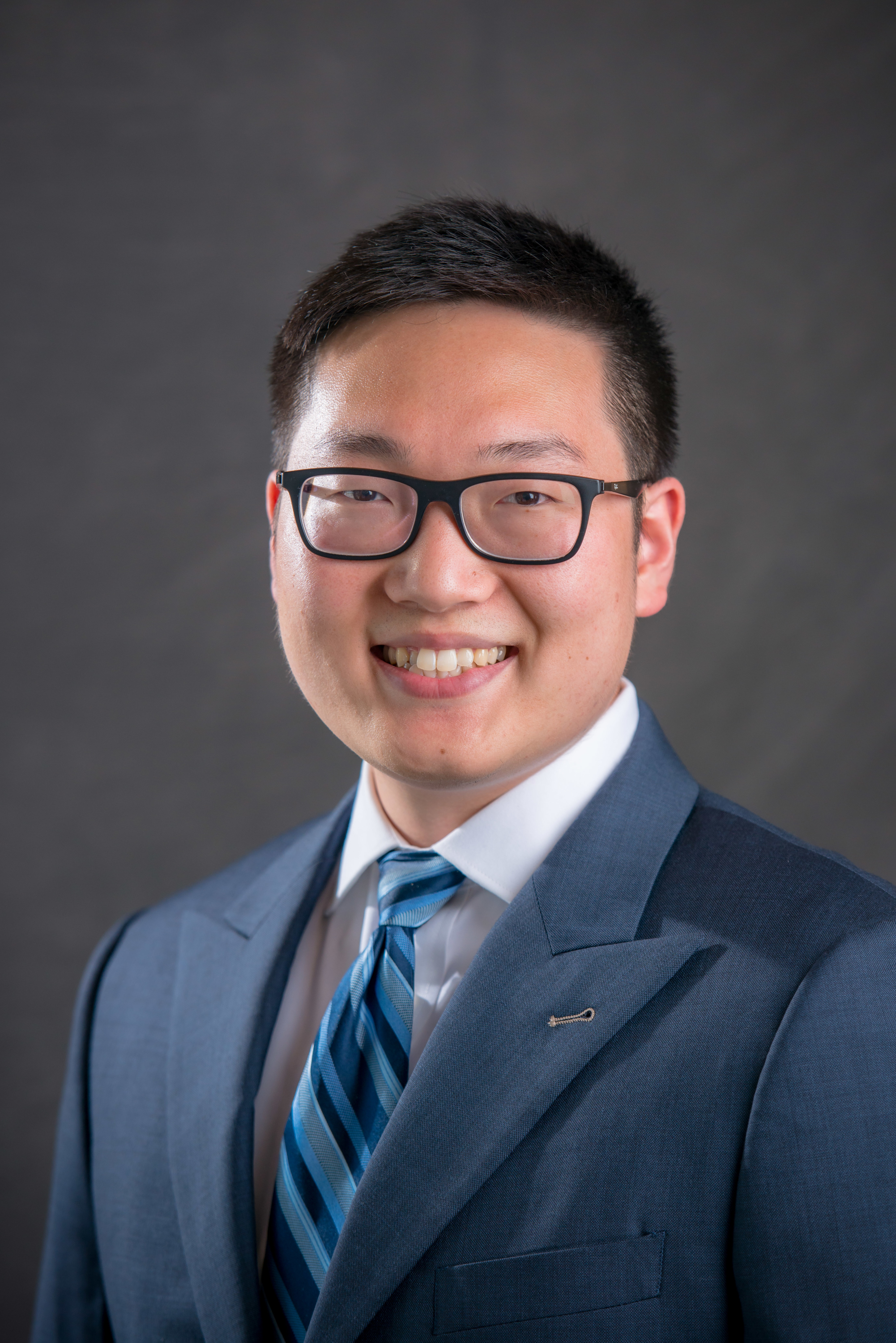Orthopaedics is widely known to be the least gender and ethnically diverse surgical specialty. Despite national statistics, work has been well underway at Yale to create equitable opportunities for those striving to pursue surgical training in one of the most competitive specialties in medicine. As a result, Yale Orthopaedics & Rehabilitation will be welcoming the most gender diverse resident class in its program’s history.
The Department of Orthopaedics & Rehabilitation at Yale has maintained a long-standing view of diversity, equity, inclusion, and belonging. Claudia Thomas, MD, for example, became the first Black female orthopaedic surgeon in the country when she completed Yale’s residency program in 1980. In 2022, Yale is now one of only six programs in the country with a woman serving as a chair of an orthopaedic surgery department that has a residency program.
Chair Lisa Lattanza, MD, who recently received the Diversity Award from the American Academy of Orthopaedic Surgeons, says barriers exist that make it difficult to reach young women and underrepresented populations. These barriers manifest in both conscious and unconscious biases, which contribute to orthopaedic surgery being the least diverse surgical specialty – something she and others in the field are committed to addressing.
After being appointed as chair in 2019, Lattanza began working on a new application process, together with the program directors and associate directors, that could evaluate all candidates evenly and fairly to find the best possible residents and eliminate bias as much as possible.
All members of the department who participated in the applicant review process were required to complete training on minimizing bias. Each resident application was reviewed by at least two attending reviewers who used a scoring rubric to evaluate multiple different qualities. Board scores and school of origin were not used in scoring the candidate applications.
Points were also given for characteristics and accomplishments that are known to be correlated with grit and resilience, which are among the most important qualities for surgical residents. In other words, how candidates continued to persevere towards a long-term goal while maintaining their passion, and their ability to see themselves through adversity or rebound after failure, are directly associated with how residents will fare during their training and throughout their careers as surgeons.
Top candidates were invited for interviews. The interviews were standardized with each applicant being asked the same series of questions each time by the same group of faculty members.
The result yielded a matched resident class comprising 80% female representation. By comparison, the resident class that started in 2021 was made up of the 60% women, and the year prior to instituting this system had none. As this group begins its five-year-long training at Yale to become orthopaedic surgeons, the program will be made up of nearly 60% women, and approximately half of the program’s residents overall are identified as underrepresented individuals in the field of medicine.
Even with these encouraging numbers at Yale and other institutions, there is a long way to go within the profession. According to a two-part STAT News article, which also featured Lattanza, while half of medical students graduating today are women, they make up only 8.5% of practicing orthopaedic surgeons and 14% of residents. While she hopes inclusivity will become naturally ingrained within the culture of orthopaedics, Lattanza says there is still more meaningful work to do.
“It is the shared belief that varied perspectives, lived experiences, and non-siloed representation generates creative solutions and new opportunities,” Lattanza says. “To that end, the department works intentionally, collectively, and collaboratively with stakeholders to strengthen the recruitment, retention, support, and advancement of a diverse workforce. After a considerable amount of effort to create an equally opportune and unbiased application process, I am incredibly pleased with our incoming cohort and look forward to officially welcoming them in person this summer.”
Meet the incoming five PGY1 residents who matched with Yale out of approximately 800 applicants:
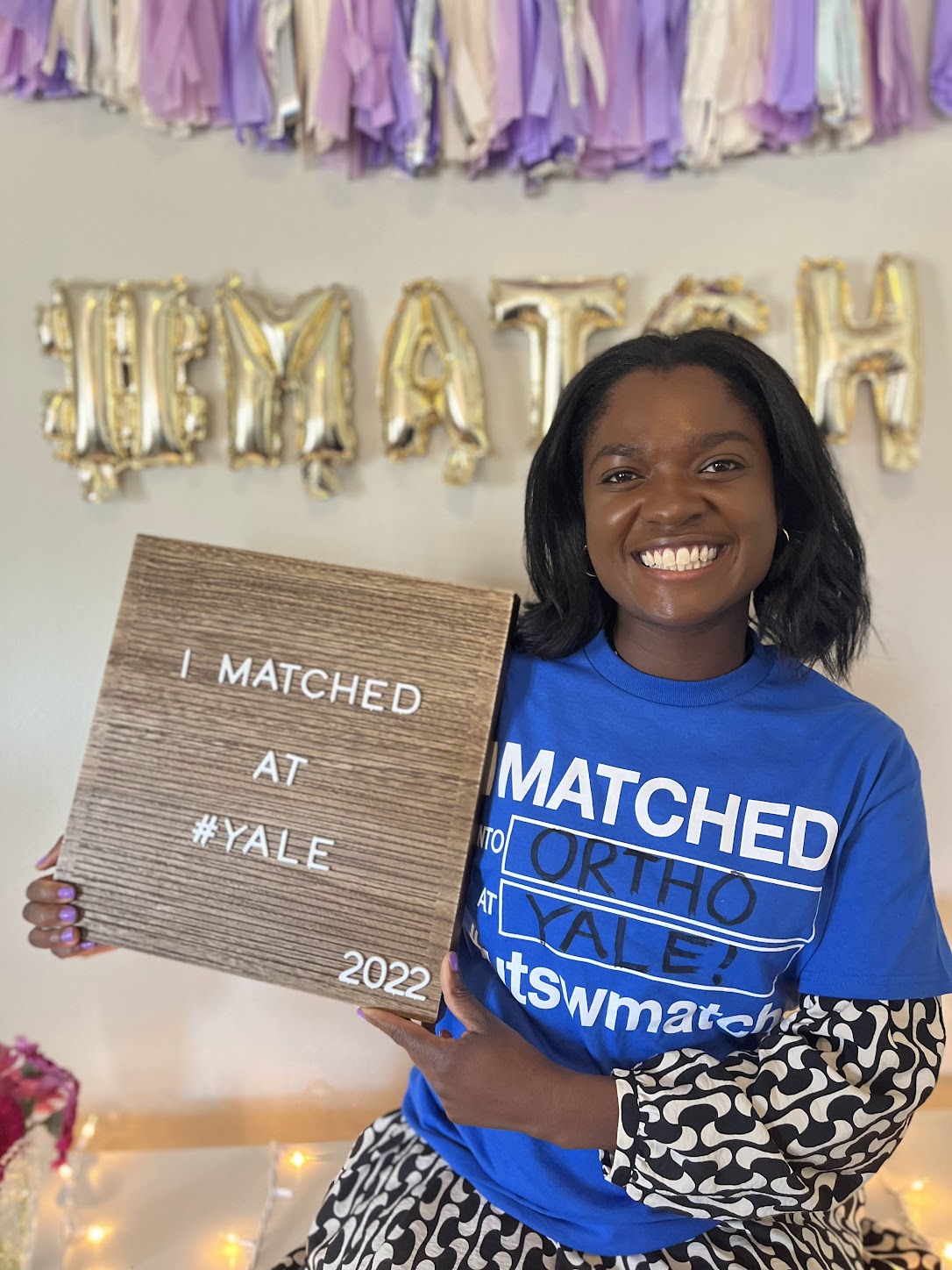
Yale was the perfect mix of everything I was looking for in a residency program. The location in New Haven would allow me to be closer to my family and friends on the East Coast and the history of supporting diverse residents made me attracted to Yale. After attending the URIM applicant recruitment dinner, I knew it was the place for me. The camaraderie of the residents and clear support of the faculty were so apparent. I knew then that I wanted to be part of the Yale community.
I discovered that I wanted to be a surgeon as a child but it wasn't until my personal experience that orthopedics turned from an interest to a passion. I struggled with hip dysplasia and femoral retroversion and underwent multiple surgeries in my early adult years. The anatomy of my hip was so complex that my doctors 3D printed a model as part of the surgical planning process. I saw the biomechanical complexity of my own anatomy firsthand as I held the model in my hands prior to the procedure. Although the recovery was long and difficult, having a front row seat through this experience drove me to pursue orthopaedics.
Women currently make up less than 10% of practicing orthopaedic surgeons in the United States, with even fewer being African American, and so I am really looking forward to adding to those numbers! I hope to continue the legacy of orthopaedic surgeons like Dr. Claudia Thomas and pave the way for those like me who may not fit the stereotypical look of an orthopedic surgeon. The privilege to actively be a part of “the fix,” and to be involved with seeing a patient take steps that no one ever thought was possible or returning to excel in their sport of choice is an amazing opportunity that I can’t wait to be a part of.
During my rotation at Yale, I had the opportunity to work with some of the most humble, happy, and warm attending physicians, residents, and nurses I have ever met. I saw it in how they cared for their patients, as well as in how they cared for each other.
I enjoyed a lot of different specialties, but I found that orthopaedics was the one specialty where I happily stayed late because I was excited to learn about mechanisms of fractures and think about how to fix them. Most of all, it was both amazing and gratifying to see the dramatic changes with function and pain in patients after surgery, which allowed them to regain their life.
I'm looking forward to being challenged during residency. It's a new role that comes with many responsibilities, but it's also five short years where I can develop as a surgeon surrounded by supportive peers and mentors who want me to succeed. It truly is a privilege and I could not be more excited to join the Yale Orthopaedics & Rehabilitation family.
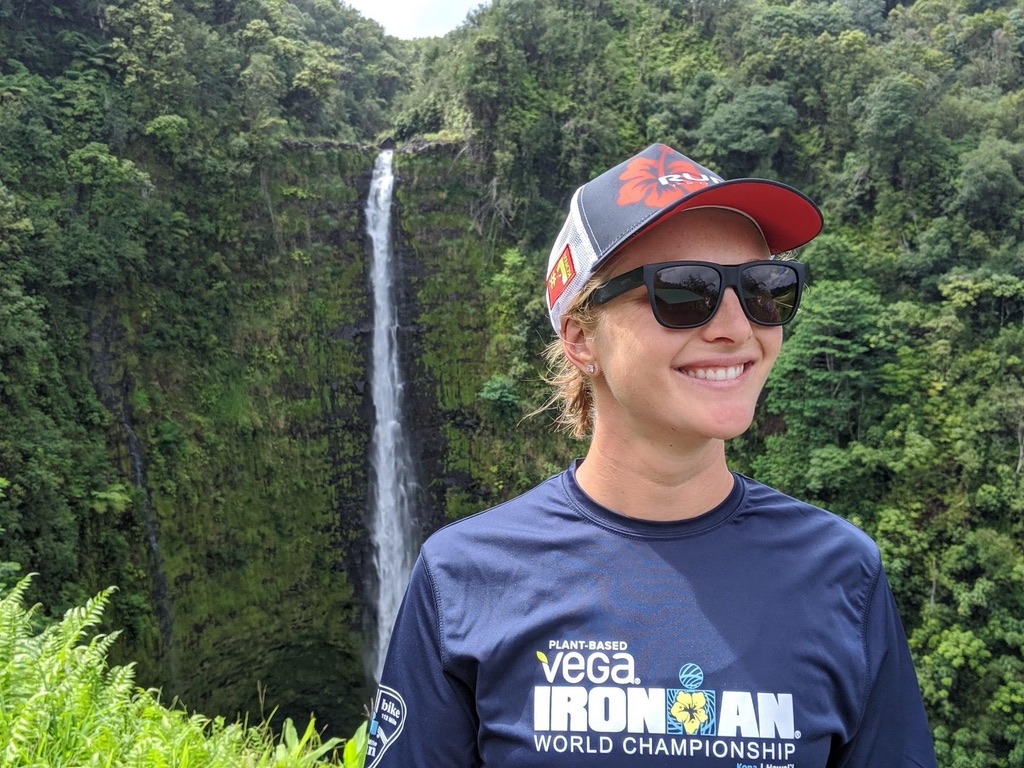
Yale came down to a gut feeling and my perception of the best possible fit. During my sub-internship, I was nine months pregnant and found the faculty and residents to be incredibly welcoming and supportive, which was unique and important as a woman in orthopaedics. It was clear that Yale “walked the walk” in terms of being family friendly, in their dedication to diversity, and in their investment in resident well-being and education.
In medical school, orthopaedics was by far my favorite rotation, the subject matter I was most interested in, and the chief complaints I was most excited to see. I felt like I was among my people and time didn’t seem to exist in the best way possible.
I am looking forward to many things in residency but mostly having the opportunity to immerse myself and be more directly involved with patient care.
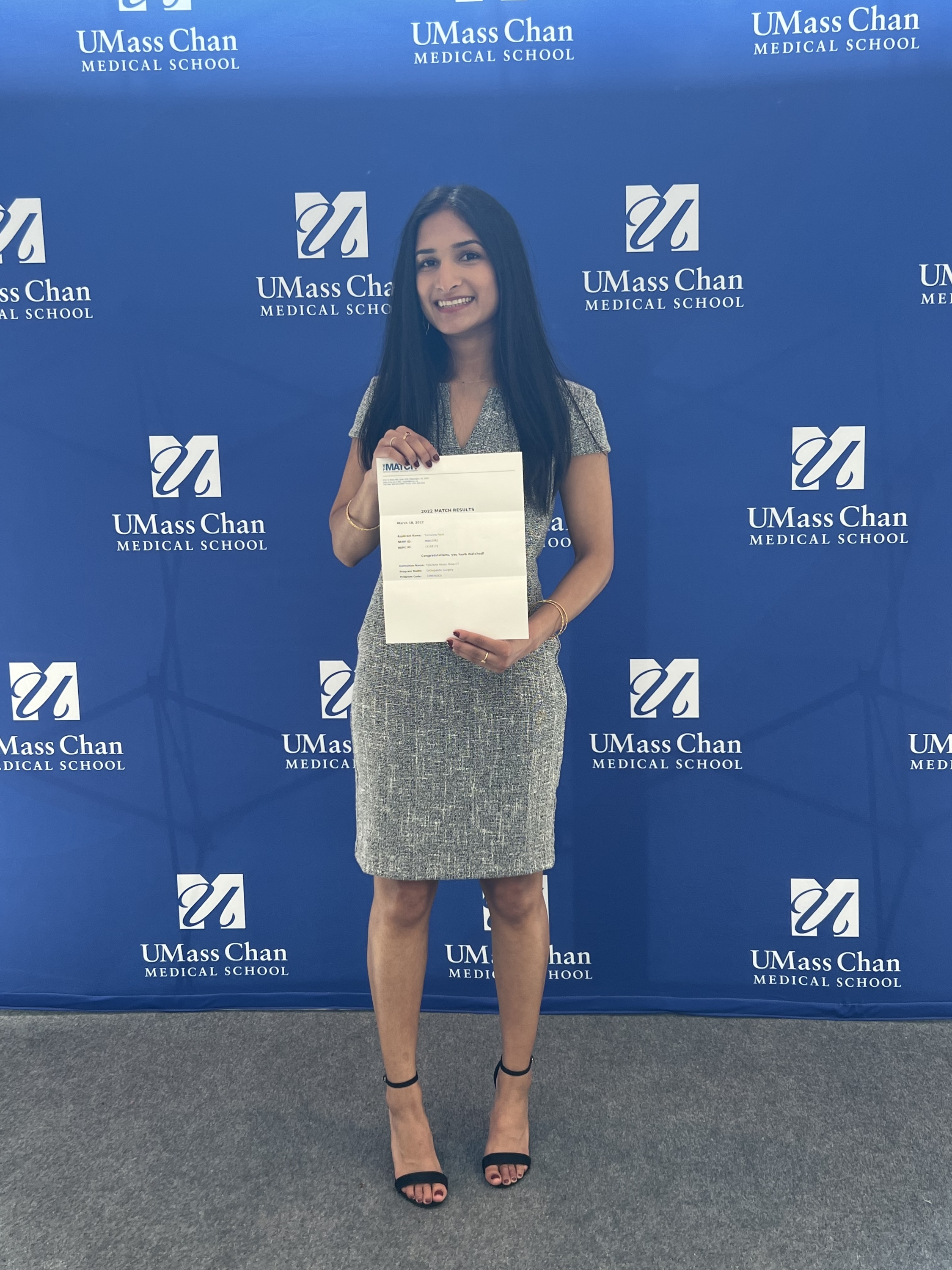
I knew I wanted to come to Yale from the moment I started my sub-internship last summer. Yale offers a diverse and rigorous operative experience, the opportunity to learn from faculty who are the best in their fields, incredible research opportunities, and a great group of residents. I couldn’t be more excited!
After doing an orthopaedic surgery rotation as a third-year medical student, I knew it was the field for me. The focus on patients’ quality of life, vast opportunity for research and innovation, and colleagues who genuinely enjoy being around each other are just a few of the reasons that make it such a special field. Moreover, it’s the specialty with which I felt most happy and excited to go to the hospital each day.
I can’t wait to immerse myself in orthopedic knowledge, develop my surgical skills, and cultivate long-lasting relationships with faculty and fellow residents.
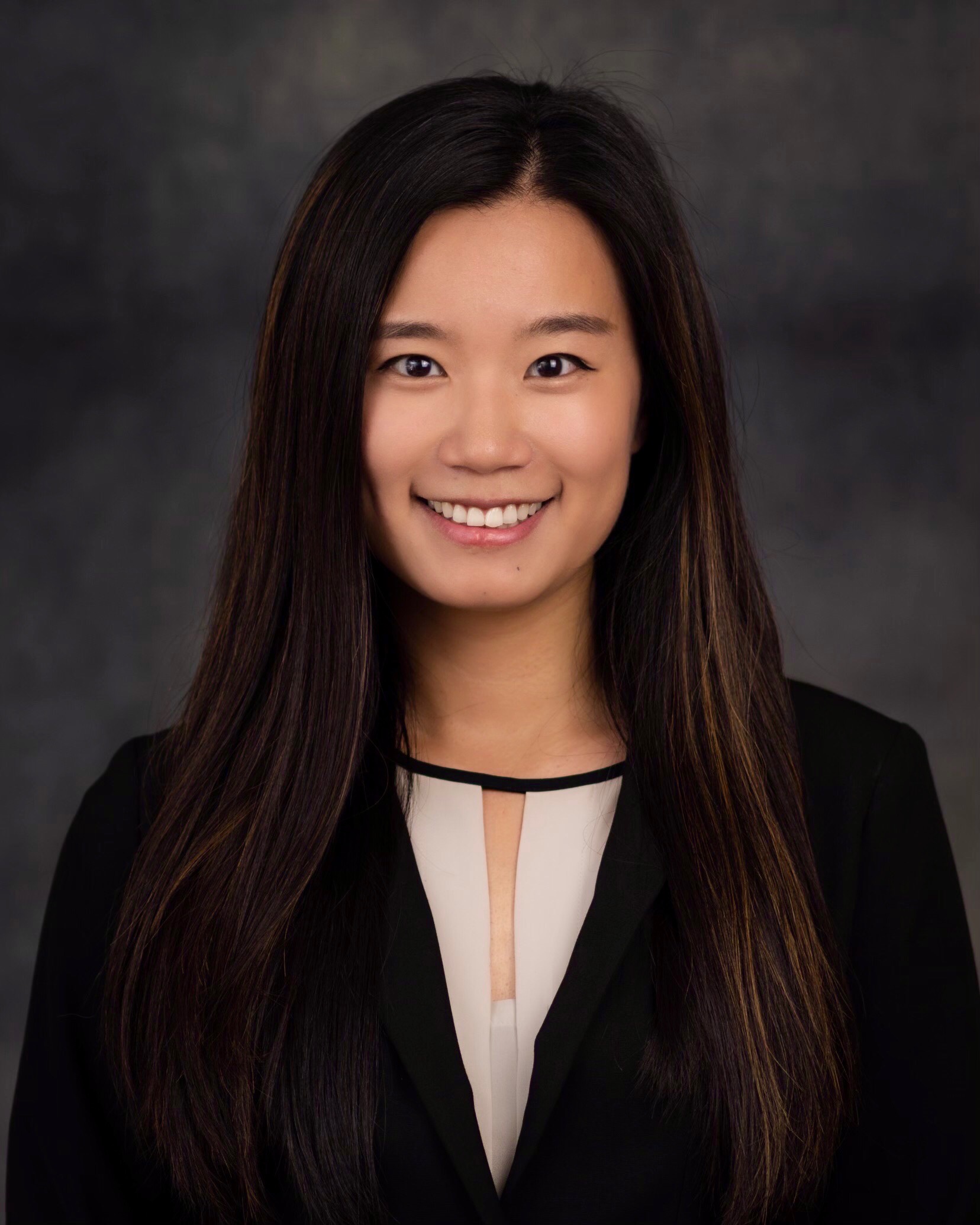
I knew Yale would be the perfect fit for me when I did my rotation here last fall. The program had everything I was looking for - an amazing community with great diversity, a supportive and accepting culture, and abundant resources. The people and the culture are my favorite part of this program. Every single resident brings a unique perspective to the program that makes it better. I was so thrilled to find out that I matched at Yale!
Orthopaedics was one of my last rotations during my third year of medical school. During this rotation, I was so happy to arrive at the hospital every day and I would be excited to come back no matter the hours – something I didn’t feel during any of my other rotations. I found the discussions of treatment plans so interesting and exciting, and that this field was the perfect combination of critical thinking, diverse patient populations, awesome surgeries and techniques, and, most important, fun.
I can't wait to see the residents and attendings! The residents are incredibly supportive and fun to be around, and I am really looking forward to learning about orthopaedics under some of the most amazing mentors.
